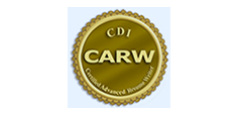 Are you caught in the trap of being unhappy with your job, complaining about it, not taking steps to change the situation or yourself, and still hoping that somehow magically it will all work out? I have some wise advice for you, “If nothing changes–nothing changes.”
Are you caught in the trap of being unhappy with your job, complaining about it, not taking steps to change the situation or yourself, and still hoping that somehow magically it will all work out? I have some wise advice for you, “If nothing changes–nothing changes.”
Having a Bad Day
Everyone can have a “bad day” at work. Unfortunately, some bad days stretch out for weeks or months. There could be many contributing factors to a stretch of bad work days, such as; seasonal or fiscal crunch times, new management, staff shortages, or radical policy changes. However, once the crisis is over, and things return to normal (or the new normal) so should a positive attitude about your job. If it doesn’t, then something is continuing to cause the unhappiness.
If work/your job is the cause of that unhappiness and we are feeling stressed–complaining is sure to follow. Complaining may feel like a stress reliever but does it change the situation and make it better? I think it just starts to wear a groove in our thought processes and causes us to look for and expect negative things. When you think about your job, are those thoughts positive or negative? What words do your thoughts produce when you talk? Are you a “glass is half empty” person or “the glass is half full”? Some people naturally seem to look at the negatives in life and others who are normally positive can fall into the complaining groove when times get tough. If your complaining is a result of habit or frustration, I encourage you to read these motivating tips from a colleague and life coach Farnoosh of Prolific Living.
When Work Is Less Than Happy
Have you been continuing in a less than satisfactory work situation for months or years while complaining and vowing to get a new job? This cycle is counterproductive to happiness. Remember the quote from above? “If nothing changes–nothing changes.”
What does that mean? If you continue exactly as you are now, doing nothing, it’s highly likely that nothing will change. The first thing to do is assess the possibilities of staying in your current job. Some questions to ask yourself when thinking about the job you now have:
- What do I honestly like about this position?
- What elements align with my passions?
- What about my job makes me feel happy and satisfied every time I do it?
- What are the projects or tasks that I most enjoy?
- Who are the people that I enjoy working with?
- Is the financial compensation enough for me to be happy?
- Is there a possibility for me to be promoted here?
- Is there a lateral position I could fill that would make me happier?
- Is there a position that would release me from responsibilities that I no longer wish to carry? Can I financially afford to make that move?
If you are feeling that a different job would be best, here are two articles that may help you decide if it is time to move on: Should You Quit Your Day Job? and 14 Signs It’s Time to Leave Your Job.
Stay or Go?
If you want things to change, you will have to make a decision to stay at your current position and make the best of it, or go, moving on to new and better opportunities. Whatever you decide, do not fall into the trap of stay but go.
Confused?
Don’t allow yourself to stay “physically” in the job you currently have but in your “mind” you have already left. When you do this it’s the same as going to work on autopilot. Going to work, hating your job the whole time, and wishing you were working somewhere else. Because of your unhappy situation, you don’t engage in the job you do have because, in your mind … you have already left. This attitude will affect your performance at work, and the negative mindset will affect everything else. If you are going to stay, then you need to be prepared to engage fully and try to make the situation better.
Preparing to Make a Job Move
Perhaps you want to move on but need to stay for a specified length of time, for financial reasons. This will give you more time to prepare to for that eventual separation and you can plan it for a more convenient time. Being proactive with your career puts you in control and in a much better position to look for and accept new work situations. Here are a few ways that you can prepare for a job or career change:
- Learn new skills
- Take continuing education classes
- Enroll in secondary education at a local college, university, or online
- Begin a home study program
- Join a professional association in your desired field and become involved
- Learn more effective job search skills
- Get a professional résumé and cover letter prepared
- Polish your LinkedIn profile and make connections to others in your field
- Learn how to ace your interview
There are many things you can do to improve your job situation; it’s all up to you. Preparing for your actual job search in more effective ways can actually SHORTEN the length of time it takes to get your new job. Did you know the average length of a job search is 36 to 40 weeks according to the Bureau of Labor Statistics? I recently talked with a job seeker who told me he has been looking for a job for more than two years. That’s a l-o-n-g time to be looking for a job or worse a long time to be out of work.
I have resources that can help you to prepare for and shorten your job search. Resources that can help you land a job you want in less time. Radiant Résumé Services is thrilled to offer a cutting edge job search success system. In fact, this awarding winning resource is titled Job Search Success! It has helped thousands of job seekers to shorten their job search and tap into the Hidden Job Market.
Contact Me now to get access to this powerful system and head your job search in the right direction.
The beginning of a successful job search starts with focusing on the type of job you actually “want.” Next you need a powerful accomplishment laden résumé written to market you to your best advantage. I’d love to write a job winning résumé and cover letter that will make you SHINE!
Contact Me today for a FREE phone consultation and begin taking the steps for a better tomorrow, right now.







